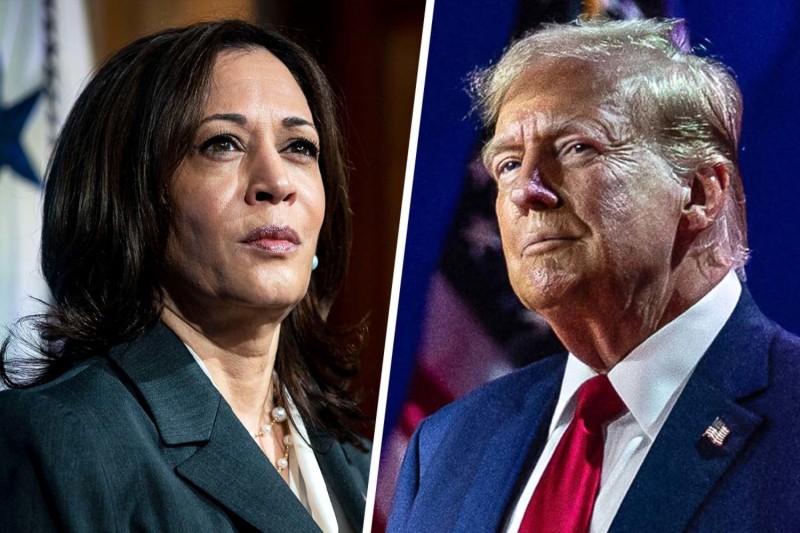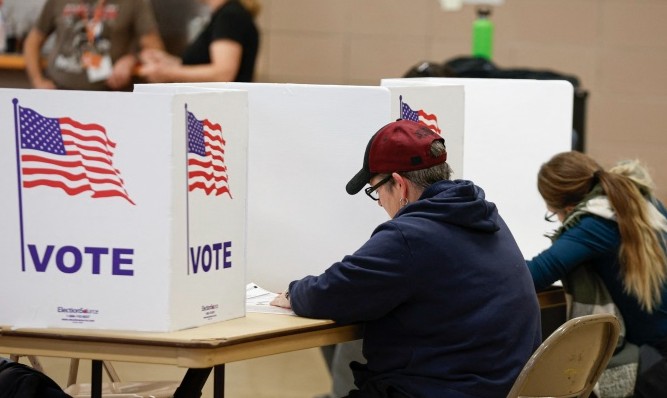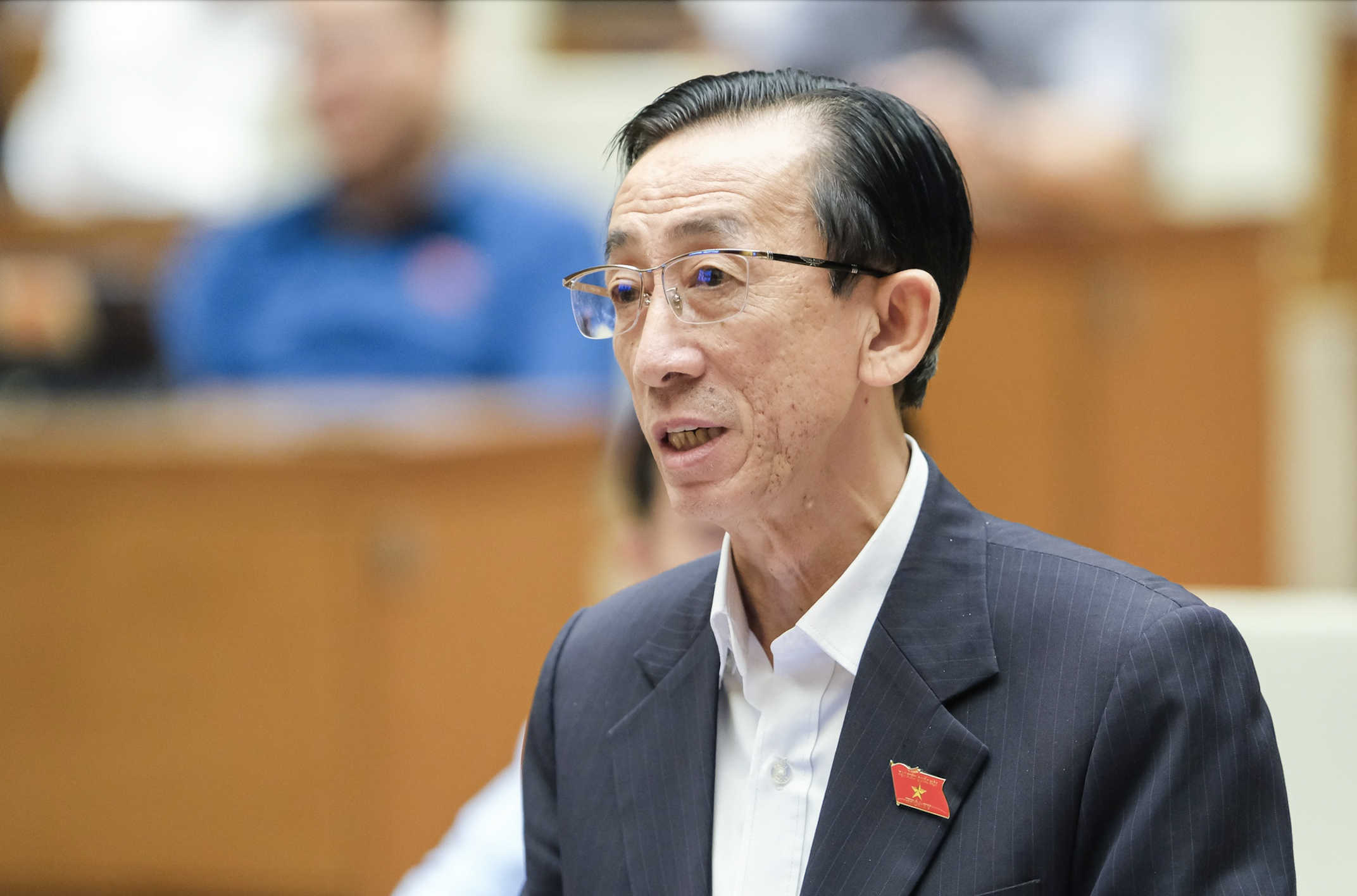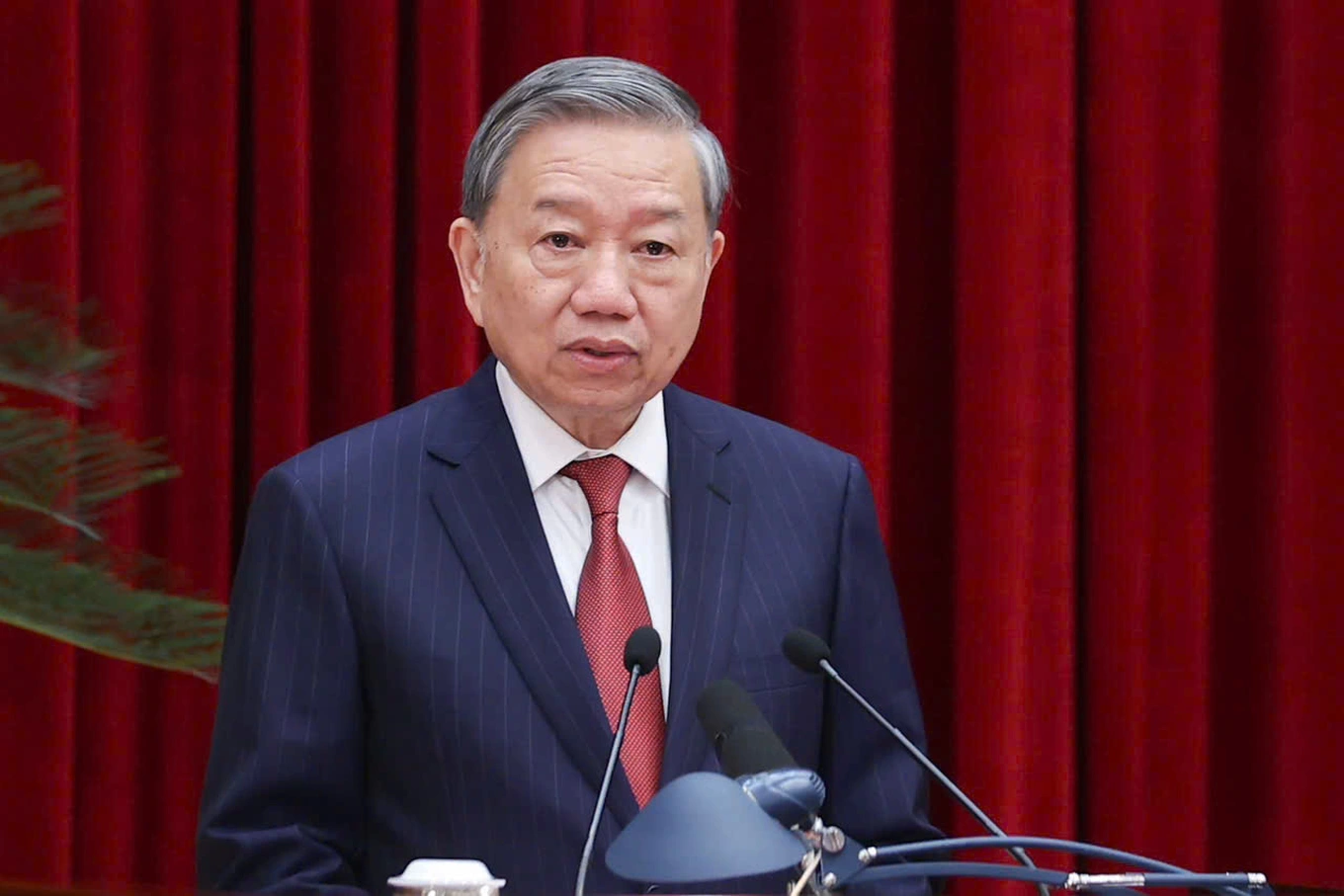The changes in numbers over the US elections show great fluctuations in people's thoughts and opinions.
On the 2024 US presidential election day, the two candidates Kamala Harris (Democrat) and Donald Trump (Republican) faced off dramatically on key issues of the economy, abortion, and foreign policy.
According to preliminary poll results from Edison Research in Wisconsin, voter support for each candidate is clearly divided among demographic groups.
Kamala Harris attracted 55% of female voters in Wisconsin, while Trump accounted for 44% of this group, up 1% compared to the 2020 election. Notably, Harris reached 58% of voters over 65 years old, however, compared to 2020, this rate decreased by 11 points.
 |
| Two candidates Kamala Harris (Democrat) and Donald Trump (Republican) - Photo: Reuters |
In contrast, Mr. Donald Trump stands out among white voters, especially men, with 59% of white men supporting him, compared to 40% supporting Ms. Harris.
For age groups, the poll results show that Ms. Harris leads with 51% of voters under 45, while Mr. Trump won 47%, up 5% from 2020. However, the group of voters over 45 has higher support for Mr. Trump (51%), although there is a slight decrease of 2% compared to the previous election.
Meanwhile, college-educated voters continued to strongly support Ms. Harris, accounting for 57%, while Mr. Trump won only 41% - unchanged from 2020. However, Mr. Trump attracted 54% of voters without a college degree, slightly more than Ms. Harris, with an increase of 2 points compared to 2020.
In terms of voter sentiment toward the candidates, just 44% of Wisconsin voters have a positive view of Trump, up slightly from 43% in the 2020 poll. However, 53% of voters still have a negative view of him, suggesting that concerns about Trump's leadership style and polarization remain strong.
Ms. Harris, in her first run for president, achieved a 47% favorable rating, lower than Mr. Biden's 52% in 2020, while 52% of voters had a negative view of her.
Additionally, the poll found that 35% of Wisconsin voters consider the economy the most important factor influencing their election decision. Additionally, 32% are concerned about the state of democracy, while 16% focus on the issue of abortion.
These numbers reflect deep concerns among voters about fundamental social and political issues, especially in the context of increasingly tense and polarized political debates. The data also shows a loss of faith in the democratic system, with 71% of people believing that democracy in the United States is under threat, an alarming figure compared to previous years.
A key issue in this year’s election is voters’ personal finances. Fifty-two percent of voters say their families are worse off financially than they were four years ago, up from 21 percent in 2020. That’s one of the key reasons the economy is a major focus of the Harris-Trump debate.
In contrast, only 22% of voters feel better off, down from 39% in 2020. These figures highlight people's dissatisfaction with economic policies in recent times.
 |
| American voters cast early ballots in Grand Rapids, Michigan - Photo: Reuters |
Overall, the results from the initial Wisconsin poll show clear differences between demographic groups and the issues they care about. Specifically, the poll reflects how different groups of people, such as age, gender, race, etc., are divided in their opinions and views on the political, social, or economic issues they consider important.
Notably, 84% of Wisconsin voters are white, with 44% being male and 41% being female. This shows that the white voter base is still large, but also shows a slight increase in Hispanic voters (from 4% in 2020 to 6% this year).
While preliminary polls provide only a snapshot of voters’ views, they still provide important information about how factors such as gender, race, education, and age influence their voting decisions. Furthermore, the change in numbers from election to election shows the dramatic changes in Americans’ thinking and opinions over the political period.
With state elections being highly competitive and voters sharply divided, the final results of the 2024 presidential election may not be known overnight.
In particular, if the difference between two candidates is very small, results that are too close between two candidates can make it take longer to determine the winner, as results need to be checked and verified from multiple places.
Source: https://congthuong.vn/bau-cu-my-2024-nhung-ket-qua-tham-do-cu-tri-dau-tien-phan-anh-dieu-gi-357107.html





![[Photo] Closing of the 11th Conference of the 13th Central Committee of the Communist Party of Vietnam](https://vstatic.vietnam.vn/vietnam/resource/IMAGE/2025/4/12/114b57fe6e9b4814a5ddfacf6dfe5b7f)
![[Photo] Overcoming all difficulties, speeding up construction progress of Hoa Binh Hydropower Plant Expansion Project](https://vstatic.vietnam.vn/vietnam/resource/IMAGE/2025/4/12/bff04b551e98484c84d74c8faa3526e0)


























































































Comment (0)